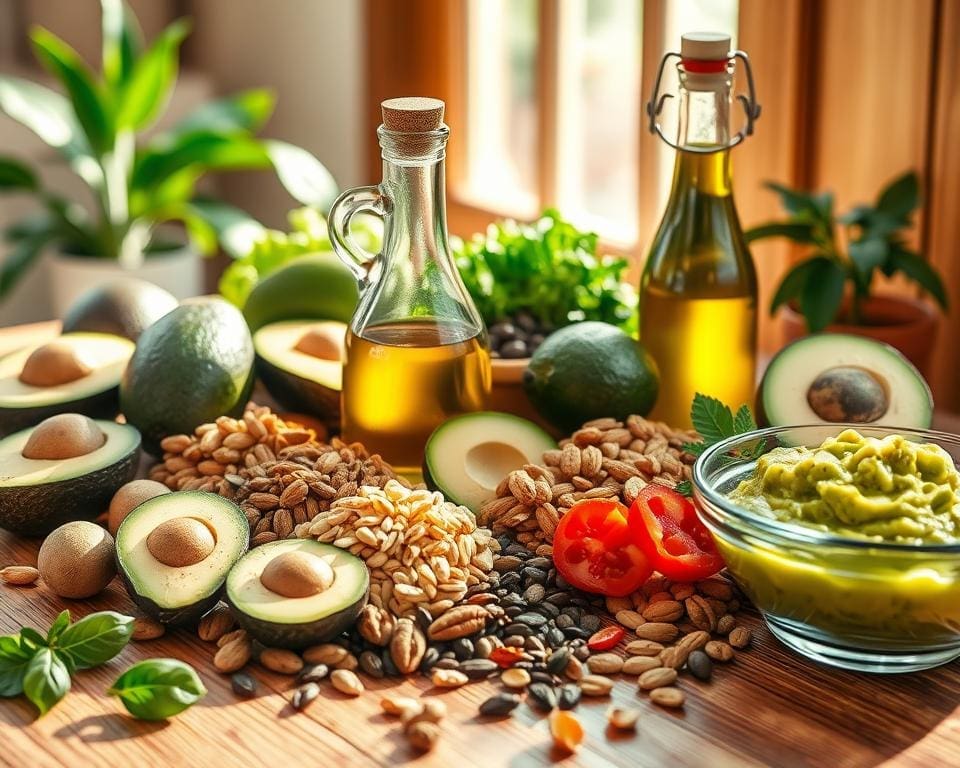In our quest for balanced nutrition, the significance of healthy fats often gets overlooked. These essential fatty acids are not merely sources of energy; they play a pivotal role in supporting cell growth, protecting organ functions, and aiding the absorption of vital nutrients. As this article unfolds, we will explore the various types of healthy fats, their benefits, and how to seamlessly incorporate them into your daily diet.
Research shows that including healthy fats can enhance cardiovascular health, boost cognitive function, and contribute to overall longevity. Understanding what constitutes healthy fats and making informed dietary choices is crucial in fostering a nourishing lifestyle. Join us on this enlightening journey towards embracing healthy fats for a balanced nutrition approach.
Understanding Healthy Fats for Balanced Nutrition
To fully appreciate the significance of healthy fats, it is essential to define what they are and how they function within our diet. Healthy fats can be classified into two primary categories: unsaturated and saturated fats. Unsaturated fats, which include both monounsaturated and polyunsaturated fats, are typically found in foods such as avocados, nuts, and olive oil. These fats are not only delicious but also contribute to our nutritional value and overall wellbeing.
What Are Healthy Fats?
Healthy fats play a crucial role in our diet by providing essential fatty acids and aiding in the absorption of fat-soluble vitamins A, D, E, and K. These components are instrumental in maintaining various bodily functions, including hormone production and brain health. Incorporating healthy fats into your meals can lead to lower levels of bad cholesterol, further enhancing balanced nutrition.
The Role of Fats in Our Diet
Fats are often misunderstood and sometimes demonised in diet culture. Yet, they are vital for our health. Healthy fats contribute to sustained energy levels and enhance the flavour of dishes, making meals more satisfying. Including these fats in moderation ensures a well-rounded diet that supports nutritional value and promotes overall health.

Healthy Fats: What to Eat for Balanced Nutrition
Incorporating healthy fats into your diet is essential for optimal nutrition. Understanding the sources of Omega-3 and Omega-6 fatty acids can significantly enhance your meals while promoting overall health. Here’s how to add these vital nutrients to your daily routine.
Top Sources of Omega-3 Fatty Acids
Omega-3 fatty acids are renowned for their numerous health benefits, particularly their role in heart health. Some top sources include:
- Fatty fish like salmon and mackerel
- Flaxseeds and flaxseed oil
- Chia seeds
- Walnuts
- Algal oil, a plant-based source
Including these foods in your meals can help reduce inflammation and support cardiovascular wellbeing.
Incorporating Omega-6 in Your Diet
Omega-6 fatty acids are vital for a balanced diet, supporting various bodily functions. Common sources include:
- Sunflower oil
- Corn oil
- Soybean oil
- Sesame oil
It’s essential to achieve a balance between Omega-3 and Omega-6 intake. Striving for this harmony can foster a more effective healthy diet.
The Nutritional Value of Good Fats
Healthy fats are not merely a source of energy; they provide significant benefits essential for overall wellbeing. Understanding the nutritional value of good fats can empower individuals to make informed dietary choices that promote health.
Benefits of Healthy Fats for Heart Health
Incorporating good fats into the diet can profoundly impact heart health. Research demonstrates a correlation between healthy fat consumption and improved cholesterol levels. By replacing saturated fats with sources rich in omega-3 and omega-6 fatty acids, individuals may find a reduction in the risk of heart disease.
- Improved cholesterol levels through increased HDL (high-density lipoprotein).
- Lower blood pressure, supporting overall cardiovascular health.
- Inflammation reduction, aiding in the prevention of heart-related conditions.
How Healthy Fats Aid Nutrient Absorption
Good fats play a vital role in the body’s ability to absorb essential nutrients. Certain vitamins, such as A, D, E, and K, are fat-soluble, meaning they require healthy fats for optimal absorption. Including sources of good fats in meals maximises the nutritional value of these vitamins, ensuring that the body receives all its necessary nutrients.
- Enhancement of vitamin absorption, leading to better overall health.
- Support for essential fatty acid incorporation into cell membranes.
- Improved satiety, promoting balanced eating habits.
Dietary Guidelines for Including Healthy Fats
Incorporating Healthy Fats into your daily nutrition is essential for maintaining a balanced diet. According to the Dietary Guidelines, a healthy eating pattern includes about 20% to 35% of your total daily calories from fats. This means that for a 2,000-calorie diet, roughly 44 to 78 grams of fat should come from healthy sources. Prioritising whole food options, such as avocados, nuts, and fatty fish, ensures that the fats you consume contribute positively to your overall health.
Substituting unhealthy fats, such as trans fats found in many processed foods, with healthier alternatives is key. Cooking oils such as extra virgin olive oil and coconut oil are excellent replacements, offering a wealth of benefits while enhancing the flavours of your dishes. Pay attention to portion control; even healthy fats are calorie-dense, and moderation is vital for effective meal planning. To strike a perfect balance, try integrating a variety of fat sources in your weekly meal prep.
Emphasising the importance of a balanced intake, consider the overall calorie count from fats in relation to your entire diet. The Dietary Guidelines advocate for a mindful approach, encouraging individuals to examine their choices carefully. By empowering oneself with knowledge about Healthy Fats, you can create nutritious meals that not only taste great but also enhance your well-being. Join the movement towards healthier eating habits and embrace the delicious world of healthy fats!








